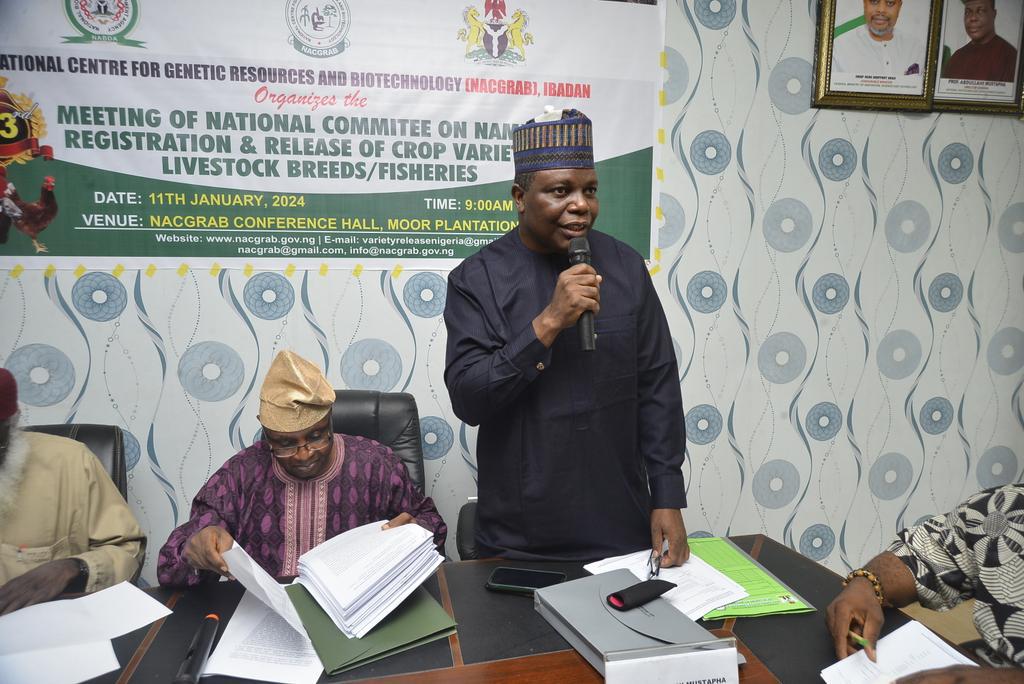|
Getting your Trinity Audio player ready...
|
Writes Toyin Omozuwa
The Director General/CEO of the National Biotechnology Development Agency (NABDA), Prof. Abdullahi Mustapha has expressed enthusiasm and satisfaction following the recent commercial release and open cultivation of the transgenic insect-resistant and drought-tolerant maize varieties known as TELA Maize.
The approval of TELA Maize by the National Committee on Naming, Registration, and Release of Crop Varieties, Livestock Breeds/Fisheries during its 37th meeting at the National Centre for Genetic Resources and Biotechnology (NACGRAB) in Ibadan on January 11, 2024 marks a significant breakthrough in enhancing food security in Nigeria.
Speaking during the meeting, Prof. Mustapha emphasised that the adoption of TELA Maize will lead to a substantial reduction in pesticide use, benefiting humans, livestock, and the environment, while also improving crop yield and ultimately boosting food security.
The newly developed maize varieties exhibit remarkable drought resistance, making them highly effective against stem-borer and fall armyworm infestations, resulting in a yield advantage of up to 10 tonnes per hectare.
Stem borers have been a major contributor to the reduction in maize production across several African countries, while fall armyworms have been responsible for the destruction of up to 20 million metric tonnes of maize in Africa annually, which is enough to feed 100 million people.
The commercial release of TELA Maize is a notable milestone in harnessing the benefits of biotechnology in agriculture. Not only will it increase maize production, but it will also improve the livelihoods of farmers and contribute to the overall economic growth of the country.
Furthermore, this breakthrough paves the way for the adoption of other genetically modified crops that have the potential to address similar agricultural challenges, thus ensuring a more sustainable and secure food future for Nigeria.






